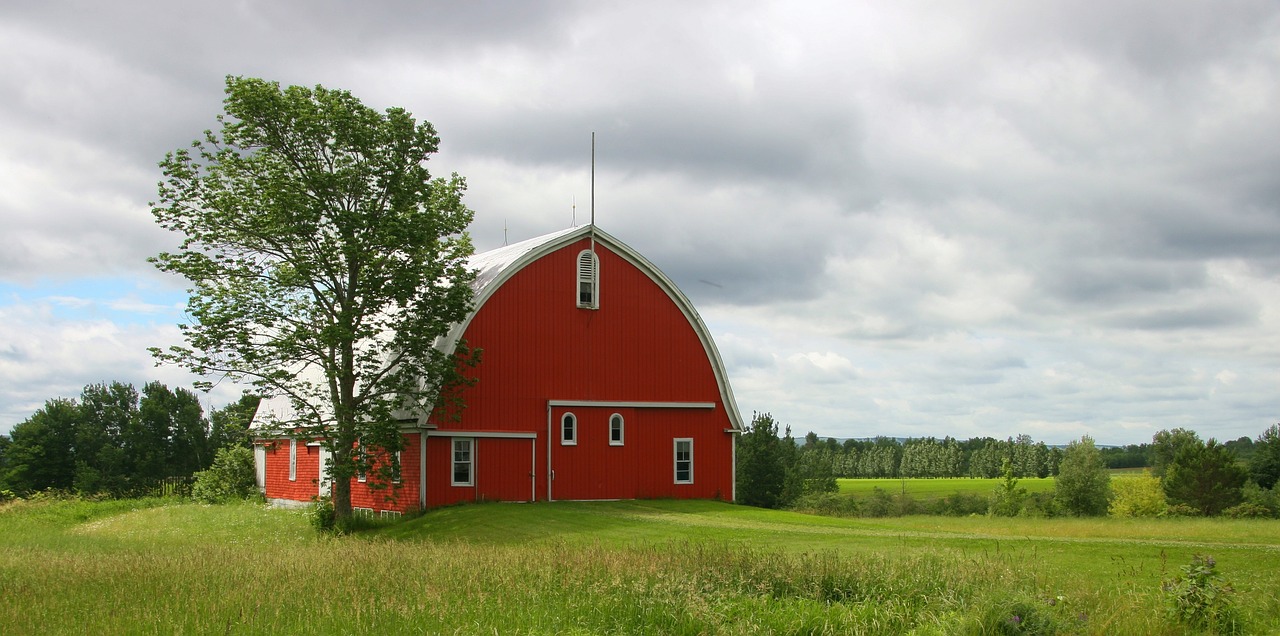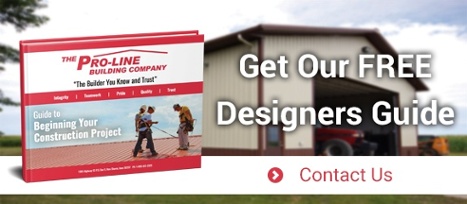
If you’re planning on adding any type of storage building to your farm, we have some great tips to get you started. Consider the following factors as you plan your design and decide where to place the new facility.
1. Purpose
The first step is to determine exactly what you’ll use the new building for. Will you use it to store large equipment and machinery? Hay and crops? Livestock? Will you need to accommodate different needs throughout the year? If so, your storage facility should be flexible so it can adapt accordingly.
2. Materials
When choosing building materials, consider more than the initial price tag. Using wood as your main building material, for example, may cost less up front, but it won’t last as long as steel would. Choose siding and roofing materials carefully, weighing the pros and cons of each type. Steel is highly durable, will last several decades, requires little maintenance, is sustainable and noncombustible, and will effectively seal out moisture.
Consider how long you’ll use the storage building, and compare that to the lifespans of different material options. Also consider energy efficiency, maintenance requirements, long-term upkeep costs, and durability. If appearance is important to you, choose colors and styles that will match or complement the buildings you already have on your farm.
3. Size
When deciding on the size of your new building, think beyond your immediate needs. Will the building accommodate your needs several years down the road? If you’re planning on growing your farm, make sure your building is large enough to grow with it; otherwise, you may need to replace it in a couple years or add on. Also consider how you’ll use it at different times of the year so it can comfortably house everything you need in every season.
4. Location
Depending on what you’ll be using your storage building for, accessibility may be a key factor when choosing a location. Will you need to access it easily from the road and drive tractors or trucks to and from the site regularly? Does it have good access to fields? Makes sure there’s plenty of space between it and other buildings you may already have on your farm. Also consider how difficult it will be to add electricity and proper drainage in the area. Meet with local utility companies before building so you can meet all requirements and don’t run into issues after you begin building.
Think about possible future expansion as well. Is there room to add on if necessary? Is there space to build a new facility nearby if you decide to do so?
4. Layout
When choosing a layout, consider how you’d like your building to flow. How do you want machinery or livestock to move in and out? You want your building to work for, not against, you and make your daily life easier. Strategically place doors and windows throughout the building.
5. Details
Don’t forget to also consider the following details as you plan your new building:
- Electricity
- Condensation and moisture control
- Ventilation
- Temperature control
- Lighting
- Exposure to elements
- Security
- Energy efficiency
- Acoustics
This list should get you started on the right track when planning your new on-farm storage building. If you’re looking for a quality building partner to assist you with your next project, contact Pro-Line Building Company. We’ve built a variety of beautiful buildings for business owners, homeowners, and farmers. Reach out to us anytime to learn more about our work.

.svg)